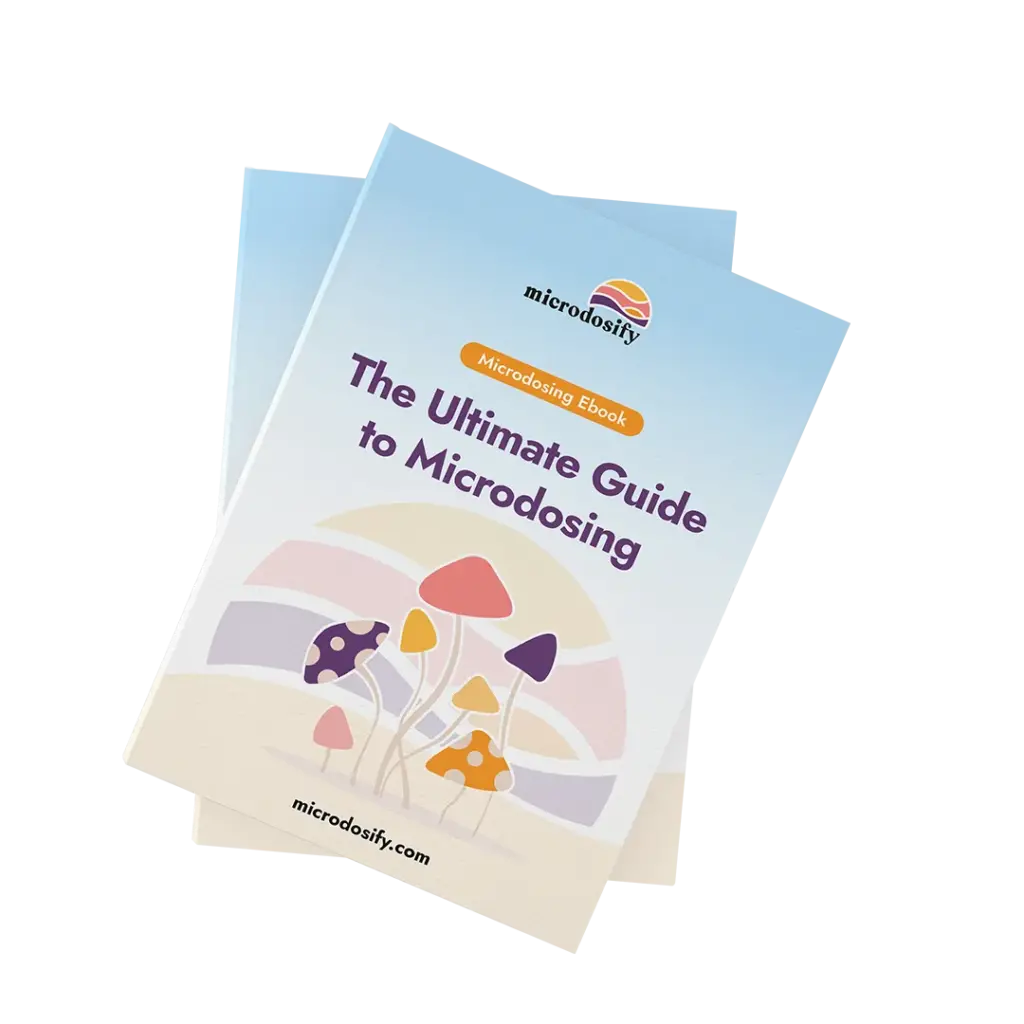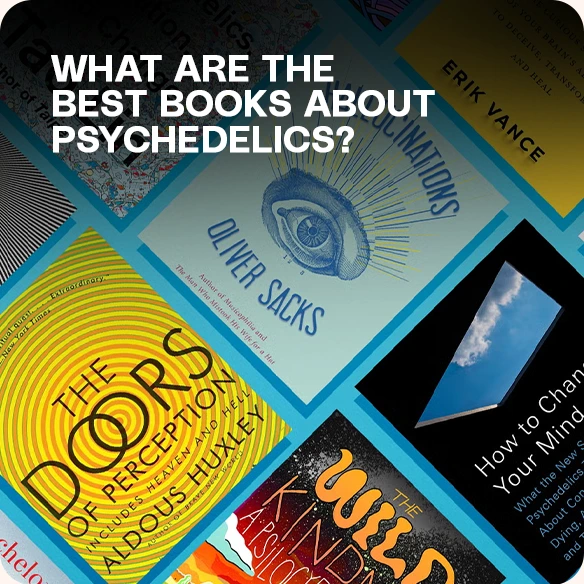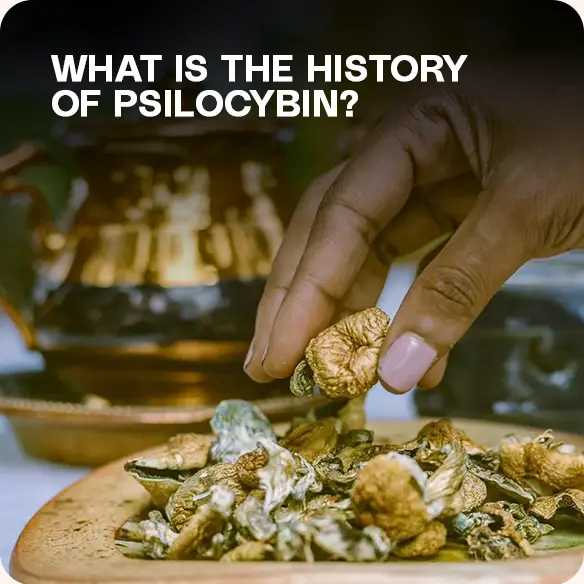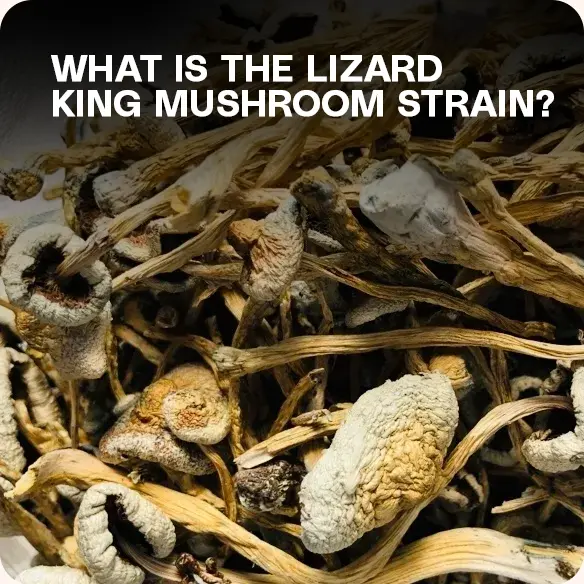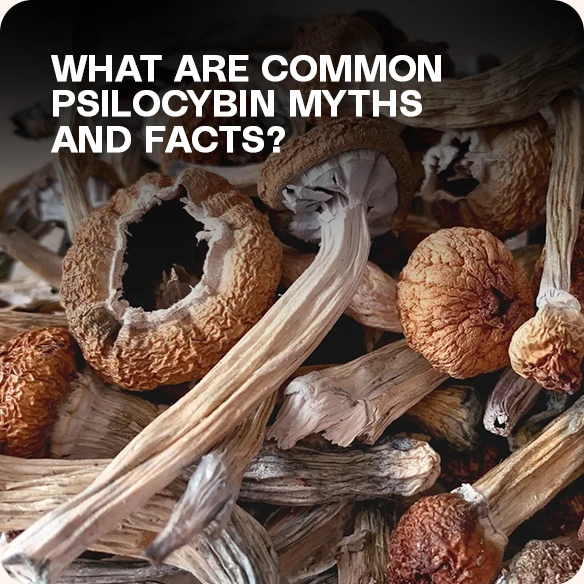The best books about psychedelics include scientific works like “How to Change Your Mind” by Michael Pollan, classic literature such as “The Doors of Perception” by Aldous Huxley, therapeutic guides like “The Psychedelic Explorer’s Guide” by James Fadiman, and cultural histories including “Food of the Gods” by Terence McKenna.
These books span scientific research, personal narratives, integration guides, and historical context, providing comprehensive education for various reader interests and experience levels.
Psychedelic literature has expanded significantly since 2018 when mainstream publishers began releasing scientifically-grounded books following renewed clinical research.
This guide covers essential titles across categories: neuroscience and therapy, personal memoirs, integration and practice, cultural history, and fiction exploring altered states.
Key Points
- Modern Classics: “How to Change Your Mind” (Pollan, 2018) brought psychedelics to mainstream audiences
- Scientific Foundation: Recent books emphasize clinical research over counterculture narratives
- Practical Guides: Integration-focused books help readers apply psychedelic insights to daily life
- Historical Context: Understanding past prohibition and cultural impact informs current renaissance
- Diverse Perspectives: Books by women, BIPOC authors, and indigenous voices expand beyond white male-dominated literature
- Fiction Options: Novels explore psychedelic experiences through narrative rather than non-fiction
- Therapeutic Focus: Many recent books target clinicians and therapists seeking training
Best Books on Psychedelics for Beginners
“How to Change Your Mind” by Michael Pollan (2018) remains the best entry point for psychedelic literature.
Pollan, a mainstream journalist, investigates psychedelic science and undergoes guided experiences himself.
The book balances history, neuroscience, and personal narrative in accessible prose that brought psychedelics to millions of readers unfamiliar with the topic.
“This Is Your Mind on Plants” (Pollan, 2021) follows up with shorter essays on opium, caffeine, and mescaline, providing additional context on human relationships with psychoactive plants.
While less comprehensive than his first book, it offers accessible entry points for specific substances.
Other Beginner-Friendly Books
“The Doors of Perception”
Author: Aldous Huxley (1954)
Best For: Readers interested in phenomenology and philosophy
Key Topics: Mescaline experience, consciousness expansion, perception
Length: 63 pages (short essay)
Huxley’s brief essay describing his mescaline experience remains remarkably relevant. His eloquent descriptions of altered perception and philosophical reflections on consciousness make this essential reading, though readers should understand 1950s cultural context differs from current therapeutic frameworks.
Best Books on Psilocybin Mushrooms
“Psilocybin Mushrooms of the World” by Paul Stamets provides comprehensive mushroom identification and cultivation information.
While technical, it’s essential reading for anyone interested in mycology, containing detailed photographs and descriptions of psilocybin-containing species worldwide.
“The Psilocybin Mushroom Bible” by Dr. K Mandrake and Virginia Haze offers updated cultivation guides with modern techniques and safety considerations. It includes step-by-step growing instructions with photographs.
Therapeutic Psilocybin Books
“The Psilocybin Connection: Psilocybin and the Pineal Gland”
Author: Jahan Khamsehzadeh, PhD (2021)
Best For: Readers interested in neuroscience and spirituality intersection
Key Topics: Pineal gland function, DMT connections, consciousness theories
Length: 288 pages
Best Books on Psychedelic Therapy
“The Psychedelic Explorer’s Guide” by James Fadiman offers practical guidance for safe, beneficial psychedelic experiences.
Originally published as a clinical manual, it covers preparation, session protocols, integration, and troubleshooting challenging experiences.
Essential reading for anyone considering psychedelic experiences or working as facilitators.
“The Manual of Psychedelic Support” by MAPS (Multidisciplinary Association for Psychedelic Studies) provides therapist training materials adapted for general readers.
It covers preparation, session management, and integration from clinical trial perspectives.
Integration and Integration-Focused Books
“The Psychedelic Integration Handbook”
Author: Marc Aixalà (2022)
Best For: Anyone post-experience seeking integration guidance
Key Topics: Processing insights, lifestyle changes, shadow work, community integration
Length: 192 pages
Integration represents the critical phase where psychedelic insights translate into lasting behavioral change. This handbook provides practical exercises, journaling prompts, and frameworks for making sense of complex experiences.
Best Books on LSD
“LSD: My Problem Child” by Albert Hofmann offers firsthand accounts from LSD’s discoverer.
Hofmann synthesized LSD in 1938 and accidentally discovered its effects in 1943. His autobiography combines chemistry, personal experiences, and reflections on LSD’s cultural impact through the 20th century.
“LSD and the Mind of the Universe” by Christopher Bache describes 20 years of high-dose LSD sessions exploring consciousness and cosmic perspectives. While controversial for advocating extreme doses, it provides unique phenomenological data on LSD’s consciousness-expanding potential.
Best Books on Psychedelic History
“Storming Heaven: LSD and the American Dream” by Jay Stevens chronicles psychedelic history from discovery through prohibition.
Stevens covers key figures, CIA experiments, Harvard controversies, and 1960s counterculture with balanced journalism avoiding both demonization and glorification.
“Acid Dreams: The Complete Social History of LSD” by Martin A. Lee and Bruce Shlain provides detailed accounts of CIA experiments, Timothy Leary’s influence, and prohibition’s political motivations. More comprehensive than Stevens but also longer and more detailed.
Indigenous and Traditional Perspectives
“The Teachings of Don Juan: A Yaqui Way of Knowledge”
Author: Carlos Castaneda (1968)
Best For: Readers interested in shamanic traditions (with caveats)
Key Topics: Peyote and Datura use, shamanic training, altered states
Note: Anthropological accuracy disputed; read as literature rather than ethnography
While Castaneda’s authenticity remains questionable, his books influenced millions and shaped Western understanding of indigenous plant medicine traditions. Read alongside authentic indigenous voices for balanced perspective.
Best Books by Psychedelic Authors
Terence McKenna stands out as psychedelics’ most eloquent and provocative philosopher.
His works combine shamanism, technology, linguistics, and consciousness theory into unique syntheses that inspire or frustrate readers depending on tolerance for speculative thinking.
| Author | Essential Book | Focus Area | Reading Level |
|---|---|---|---|
| Terence McKenna | “Food of the Gods” | Human evolution, ethnobotany | Advanced |
| Stanislav Grof | “LSD Psychotherapy” | Therapeutic techniques, transpersonal psychology | Professional |
| Rick Strassman | “DMT: The Spirit Molecule” | DMT research, consciousness theories | Intermediate |
| Ralph Metzner | “The Toad and the Jaguar” | 5-MeO-DMT, ayahuasca | Intermediate |
| Dennis McKenna | “The Brotherhood of the Screaming Abyss” | Memoir, ethnobotany | Intermediate |
Women’s Voices in Psychedelic Literature
Psychedelic literature has historically centered white male perspectives. Recent years brought increased recognition of women authors and researchers making essential contributions.
“Women and Psychedelics: Uncovering Invisible Voices”
Editors: Michaela de Boer, Leia Friedman, and Jasmine Virdi (2023)
Best For: Readers seeking diverse perspectives
Key Topics: Gender-specific experiences, historical erasure, contemporary research
Length: 320 pages
“Psychedelic Mysteries of the Feminine” by Maria Papaspyrou, Chiara Baldini, and David Luke explores feminine archetypes, menstruation and psychedelics, and women’s healing traditions.
Best Non-Fiction Psychedelic Books
Non-fiction psychedelic books fall into categories: scientific, therapeutic, historical, and phenomenological. Each category serves different reader needs and interests.
Top Scientific Books
“Psychedelics: Pharmacology, Neuroscience and Therapeutic Applications”
Editors: Halberstadt, Vollenweider, and Nichols (2022)
Best For: Scientists, clinicians, advanced readers
Key Topics: Molecular mechanisms, receptor pharmacology, clinical trial results
Length: 400 pages
Note: Academic textbook level
This comprehensive textbook from leading researchers covers current understanding of psychedelic pharmacology and therapeutic applications. Essential for professionals but challenging for general readers without scientific backgrounds.
Psychedelic Fiction Books
Fiction exploring psychedelic experiences offers narrative immersion impossible in non-fiction. These novels capture subjective phenomenology while telling compelling stories.
“The Electric Kool-Aid Acid Test”
Author: Tom Wolfe (1968)
Best For: 1960s counterculture enthusiasts
Key Topics: Ken Kesey, Merry Pranksters, LSD culture
Genre: New Journalism (faction – fact-based narrative)
Length: 416 pages
“The Illuminatus! Trilogy” by Robert Shea and Robert Anton Wilson weaves conspiracy theories, psychedelics, and reality-bending narratives into satirical science fiction exploring consciousness expansion.
Contemporary Psychedelic Fiction
“The Overstory” by Richard Powers won the Pulitzer Prize partially for exploring consciousness expansion through nature connection, with psychedelics appearing as tools for ecological awakening. Less explicitly psychedelic than other fiction but beautifully written.
Books on Microdosing
“The Psychedelic Explorer’s Guide” by Fadiman includes the first published microdosing protocol, making it essential microdosing reading despite broader scope. Fadiman’s protocol (one day on, two days off) became most widely followed approach.
“A Really Good Day: How Microdosing Made a Mega Difference in My Mood, My Marriage, and My Life”
Author: Ayelet Waldman (2017)
Best For: Personal narrative seekers, microdosing curious
Key Topics: 30-day LSD microdosing experiment, mood tracking, family relationships
Length: 272 pages
Waldman chronicles her month-long LSD microdosing experiment for depression and mood instability. Her honest, humorous account makes microdosing accessible to mainstream readers while discussing legal and ethical complexities.
Books on Ayahuasca
“The Ayahuasca Test Pilots Handbook” by Chris Kilham provides practical ayahuasca guidance from experienced practitioners. It covers preparation, ceremony protocols, integration, and choosing safe facilitators.
“The Fellowship of the River: A Medical Doctor’s Exploration into Traditional Amazonian Plant Medicine”
Author: Joseph Tafur, MD (2017)
Best For: Medical professionals, serious ayahuasca explorers
Key Topics: Western medicine meets traditional healing, ceremony experiences, integration challenges
Length: 264 pages
Dr. Tafur’s memoir describes his journey from conventional medicine to Amazonian plant medicine apprenticeship. He bridges Western medical perspective with traditional healing understanding.
Frequently Asked Questions About Psychedelic Books
What book should I read first about psychedelics?
“How to Change Your Mind” by Michael Pollan is the best first psychedelic book for most readers. It balances science, history, and personal narrative in accessible prose that doesn’t assume prior knowledge. Pollan’s mainstream journalism background makes complex topics understandable for general audiences.
Are there good psychedelic books for therapists?
“The Psychedelic Explorer’s Guide” by Fadiman and “Psychedelics: Pharmacology, Neuroscience and Therapeutic Applications” serve therapist needs. MAPS also publishes training manuals and therapy guides specifically for clinicians seeking psychedelic-assisted therapy training.
What are the best books on magic mushrooms?
“Psilocybin Mushrooms of the World” by Stamets for identification and cultivation, “The Psilocybin Mushroom Bible” for growing guides. For therapeutic context, Pollan’s chapters on psilocybin in “How to Change Your Mind” provide excellent background.
Are there psychedelic books written by women?
“Women and Psychedelics: Uncovering Invisible Voices” (2023) centers women’s experiences and contributions. Ayelet Waldman’s “A Really Good Day,” Maria Papaspyrou’s work, and numerous academic researchers like Robin Carhart-Harris and Amanda Feilding contribute significantly to psychedelic literature.
What books cover psychedelic integration?
“The Psychedelic Integration Handbook” by Marc Aixalà focuses specifically on post-experience integration. Fadiman’s “Psychedelic Explorer’s Guide” includes integration chapters. Many recent books address integration recognizing its critical importance for lasting benefits.
